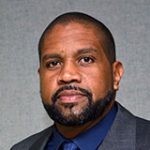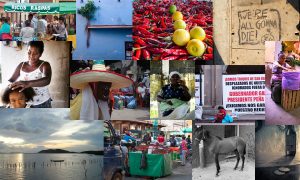Anthony Jerry
Convener, Blackness Unbound, Faculty Commons Project

Anthony’s Stats
Department: Anthropology
Rank: Assistant Professor
Years at UCR: 3
Project website: culturalmediaarchive.org
Q. Summarize your research in one sentence:
My work seeks to highlight the ways that blackness has historically been conceived of as the means of production and the ways that this conception continues to inform the possibilities of experiences and expressions of contemporary blackness in Mexico and the U.S. Southwest.
Q. How does your work add to current conversations in the field?
The essential contribution my research is making is to take a critical look at blackness through the lens of citizenship, and therefore re-introduce the Black experience into a contemporary theoretical conversation on citizenship.
 Q. What questions are you pursuing now?
Q. What questions are you pursuing now?
Currently, I am working on two projects; 1) I am wrapping up my first major research project on the process of Black recognition in Mexico, and 2) I am looking at youth experiences with citizenship in the U.S. Mexico border region. My research in Mexico looks at the possibilities for African descendants in Mexico to be represented as national subjects within the multicultural era, the impact of Black recognition on the overall Mexican national origin myth, as well as the related impact of Black recognition on the geopolitical relations within the U.S. Mexico border region. My second project is taking a relational approach to citizenship and focuses on youth experiences in the U.S. Southwest with 1) first generation citizenship, 2) “coming out” experiences, 3) first experiences with the “n-word” as a racial epithet, and 4) experiences of police brutality, in order to explain how a number of competing social inheritances position subjects/citizens in relation to each other.
Q. How do you link your projects with specific communities?
As part of my newest research project, I am building a publically available research/teaching archive focusing on youth experiences with citizenship in order to provide a resource for k-12 education and youth activists. This work, in collaboration with my non-profit organization, The Cultural Media Archive, is a way to engage with the public around issues of sexual and racial discrimination experienced by youth.
Q. It’s often said that we learn the most when we begin teaching. What has your teaching experience taught you?
The most valuable lesson that teaching has taught me is to never lose sight of the fact that real learning is experiential and dialogic and can only happen in the classroom if the classroom space is used as a space to facilitate conversation.
—
In Focus is a new interview series that features faculty associates of the Center for Ideas and Society.
